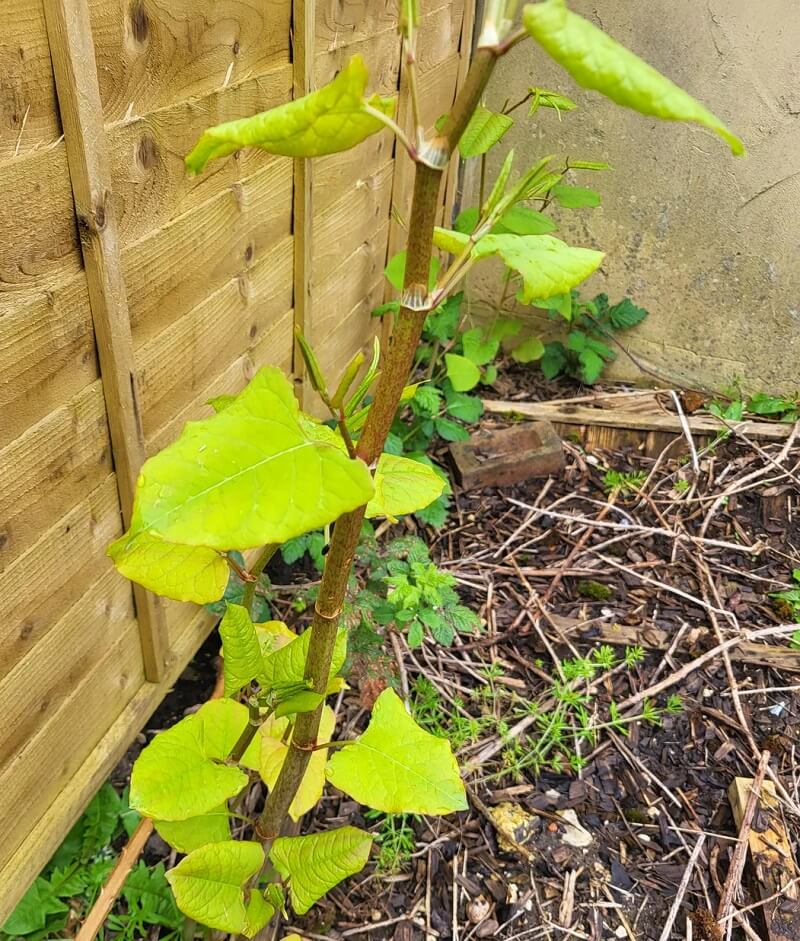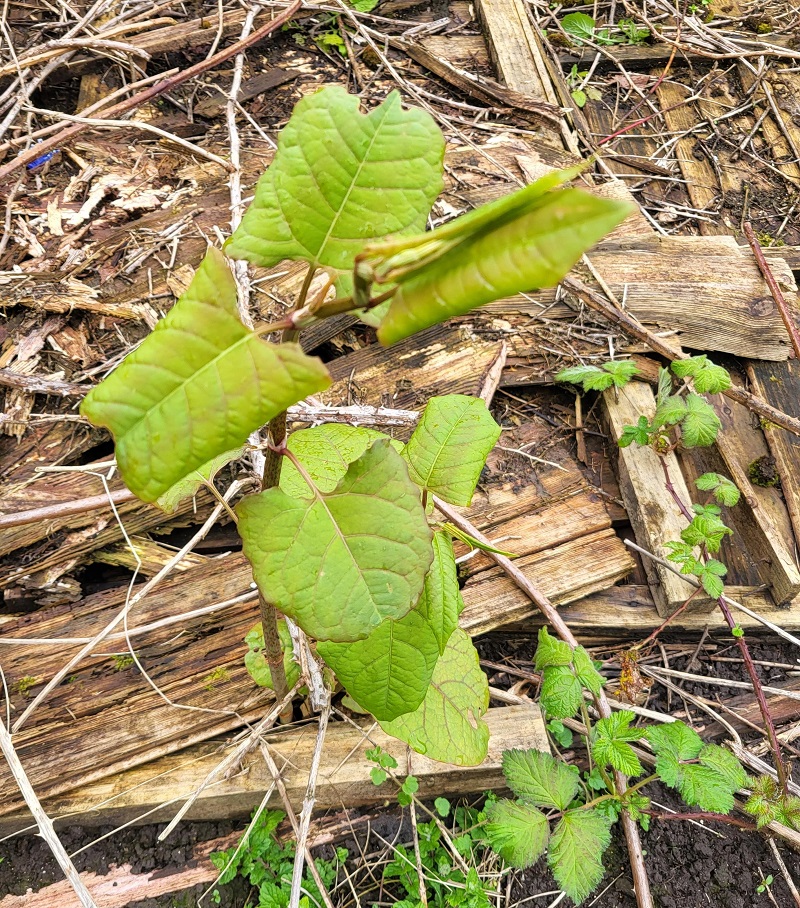A distressed homebuyer contacted Reddit's r/GardeningUK for help identifying a weed.
According to the Redditor who shared the post, the weed has spread from the neighbor's lawn onto the property for sale next door.


Redditors immediately recognized the noxious weed and warned about its invasive properties.
"Japanese knotweed. Yikes," wrote one user.
"If it's coming from next door (and depending on where you live), you can actually get the law involved, as in a lot of places, failure to remove and allowing it to spread can be a crime," responded another Redditor.
Japanese knotweed is considered an invasive species across the U.S. Originally from Asia, the fast-growing plant competes with local flora for resources, eventually overtaking the surrounding plant life. This creates a detrimental domino effect in which other local species, such as birds and insects, leave the area due to habitat and food loss.
Like other invasive species, Japanese knotweed threatens the entire local ecosystem, disrupting the fragile habitat system and decreasing biodiversity.
After confirming their worst fears about the weed's origin, the potential homebuyer admitted they were no longer interested in the property.
"I have told a small lie - this is actually at a property for sale, not my garden," wrote the Redditor. "We really liked it, but now we're obviously out."
To avoid introducing potentially invasive species, consider growing native plants in your yard. Native plants are species local to your region that do not require assistance to grow and thrive once planted.
Gardening and switching to a native-plant lawn will save you time and money on lawn maintenance. Each year, you can save $275 on water, $50 on fertilizer, and $50 on pesticides and weed control after switching to a native-plant lawn.
In addition to being a huge time- and money-saver, native lawns help support a healthy ecosystem for pollinators, which also benefits humans since we rely on them for numerous foods we enjoy.
Even replacing a portion of your lawn with low-maintenance plants, such as clover or buffalo grass, can allow your bank account and the planet to flourish.
"Uh oh, that's the bad one," wrote one user.
"Not fun to deal with, from what I've read," commented another Redditor.
Join our free newsletter for easy tips to save more, waste less, and help yourself while helping the planet.









